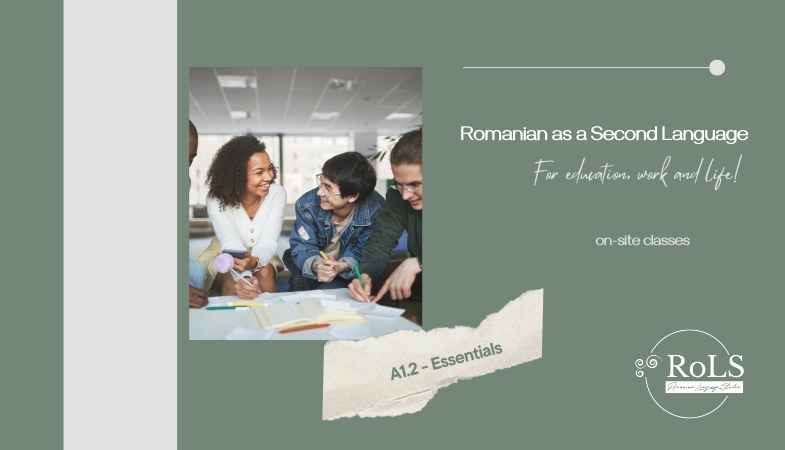
Once you've finished module A1.1, setting the foundation for level A1, we suggest moving on to module A1.2. Whether you're eager to build upon what you've learned in the initial module and bridge any remaining gaps to reach level A1, or you already possess some basic Romanian skills and knowledge that you're eager to reinforce and expand, this module is perfectly suited for you. Building upon the foundation laid in A1.1, this course delves deeper into basic vocabulary, grammar structures, and language skills, providing learners with the tools to communicate more confidently in everyday situations. Our experienced instructors employ a communicative and task-based approach, encouraging active participation and engagement from students. Through interactive activities, group discussions, role-plays, and multimedia resources, students will build upon their existing knowledge and develop greater confidence in their language abilities.
By the time you complete level A1, you'll have mastered everyday expressions and fundamental phrases crucial for fulfilling your daily requirements. You'll learn how to introduce yourself and others, as well as participate in basic interactions, laying a strong groundwork for effective communication. Through our interactive sessions, you'll acquire the ability to ask and answer questions about personal details (address, acquaintances, belongings, etc.). You'll also refine your skills in initiating and responding to simple statements on familiar topics or matters of immediate relevance.
Contents & abilities (for level A1)- Essential words and phrases related to everyday topics such as greetings, introducing yourself and others, family, friends, daily activities, hobbies, numbers, colors, food and drinks, clothing, and common objects.
- Basic grammar concepts, including simple sentence structure, verb conjugation in present and past tense, articles, gender and number agreement, basic prepositions, and pronouns.
- Describe yourself, your job, where you live, and aspects of your daily life, and provide basic descriptions of objects or pictures.
- Write about personal matters, describe rooms and everyday objects, and write simple sentences about yourself and imaginary people using simple words.
- Understand basic words and expressions related to personal topics, hobbies, and surroundings when spoken slowly and clearly, and grasp short conversations.
- Process short and simple messages from various sources, recognize familiar words and basic expressions, and comprehend basic information in practical settings.
- Engage in basic interactions, ask and answer simple questions, use common greetings and farewells, express likes and dislikes, and handle basic transactions.
- Exchange personal information in written form, craft concise messages, fill out basic forms, and use conventional expressions for online communication.
- Translate simple words and phrases, encourage participation, demonstrate interest, and indicate understanding or sympathy in simple interactions.
- Identify international words, understand their meanings from context, handle basic transactions in different languages, and recognize key cultural differences.